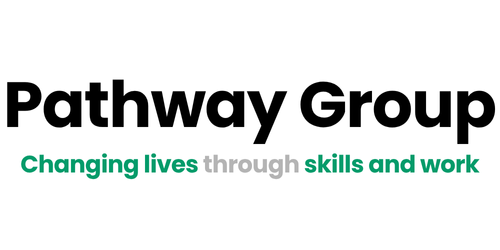Tips on Job Hunting When You Are LGBTQ+
There remain challenges for LGBTQ+ job seekers in the UK. A recent report highlighted barriers to recruitment, with almost one in five LGBTQ+ people (18 percent) who were looking for work saying that they were discriminated against because of their sexual orientation or gender identity.
To make sure that a workplace may be right for you, you can:
Research companies before you apply
Does their website show visible commitment to LGBTQ+ equality and showcase best practice equality policies? Have a look at Stonewall’s top 100 LGBT UK employers (https://www.stonewall.org.uk/full-list-top-100-employers-2019 ) if you’re interested in multi-national employers, then have a look at the 2021 Corporate Equality Index (https://www.stonewall.org.uk/creating-inclusive-workplaces/workplace-equality-indices/uk-workplace-equality-index). If not just use Google.
When applying for a job, LGBTQ+ individuals should look for the following:
- Non-Discrimination Policy: Look for evidence that the employer has a non-discrimination policy in place that specifically includes sexual orientation and gender identity as protected characteristics.
- Diversity and Inclusion: Look for indications that the company values diversity and inclusion. This could include the company’s mission statement, employee resource groups for the LGBT community, or information about diversity and inclusion initiatives on their website or in job advertisements.
- Employee Benefits: Look for information about employee benefits, such as health insurance and family leave, to see if the company offers equal benefits to all employees, regardless of sexual orientation or gender identity.
- Work Culture: Research the company’s work culture, including their policies and practices, and look for information about how they support their LGBT employees.
- Employee Testimonials: Look for employee testimonials and reviews, especially from LGBT employees, to get a better understanding of the company’s culture and policies.
Also:
- go beyond their website and head to social media. Look for blog posts or team members’ LinkedIn profiles
- find out if they run diversity initiatives (e.g. Stonewall’s Diversity Champions, LGBT+ mentoring, or working groups). See https://www.stonewall.org.uk
- ask if they support other people’s events/initiatives/LGBTQ+ awareness days.
Make sure that your cover letter and CV reflect you
As ever, with any job application, make sure you are reflecting your true self in the cover letter and CV. This should be current and as up to date as possible. We recommend that you show any letter or CV for assessment to another professional, be that a friend or mentor. They may even identify some changes to be made to the tone, spelling and grammar, all of which will help you secure that job.
Should you come out on your CV?
The point of a CV is to show off the relevant experience you have that qualifies you for the job you’re applying for. Some people mistakenly assume that experience directly relating to their LGBTQ+ identity is inappropriate to share in a work context, but this is not the case. Mentioning your sexual orientation or gender identity can sometimes be a way to demonstrate your commitment to diversity and inclusion and can help you find a workplace that is supportive of the LGBTQ+ community.
If you’re comfortable with “outing” yourself as LGBTQ+ on your CV, you should include this sort of experience.
Look out for equality commitments in job descriptions
One of the big ways in which a prospective, truly inclusive employer can shine for the LGBTQ+ community is if they include their equality commitments in their job postings. Assess out their equality and diversity policy on their website too. Many businesses include a link to it within their footer, to make it easier to find (although it can sometimes be grouped with other policies or be included within their terms and conditions). If you’re unable to find it easily, we recommend reaching out to the company directly, via their ‘Contact Us’ page.
Keep your social media accounts private rather than public
This is something everyone should do. There is no hiding the fact that prospective employers will search for you to see what they can find.
Remember that people can tag you in images too, so you should have a look at these and untag yourself where appropriate.
Look for flexible working roles
If you have found that you have faced challenges in the past, then a flexible working role could be the answer. This is a great way to help support improved inclusion in the workplace. It will allow you to truly focus on being productive and delivering great quality work, rather than worrying about dress code and other things, being present in the office can bring. This can also be helpful to those transgender employees who are transitioning. It can help ease stress and pressure.
Finally, LGBTQ+ friendly organisations will understand (or seek to understand) the unique skills and experiences you have to offer. And if you have questions, pick up the phone/send a message – most employers will be happy to have an informal chat before you apply.
It is important to note that while these steps can help identify companies that are supportive of the LGBT community, they do not guarantee a discrimination-free workplace. If you experience discrimination in the workplace, you have the right to make a complaint to an employment tribunal.
